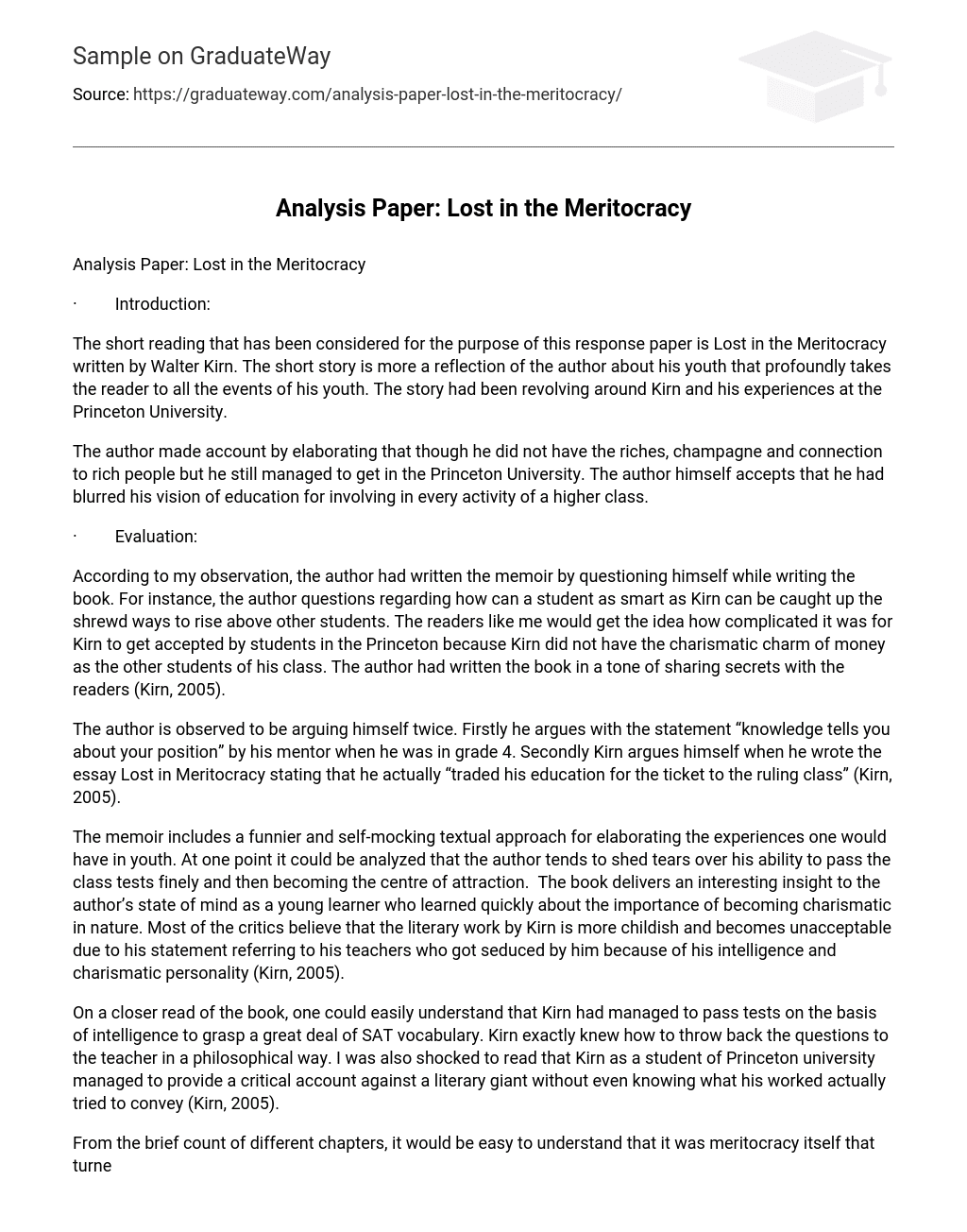· Introduction:
The short reading that has been considered for the purpose of this response paper is Lost in the Meritocracy written by Walter Kirn. The short story is more a reflection of the author about his youth that profoundly takes the reader to all the events of his youth. The story had been revolving around Kirn and his experiences at the Princeton University.
The author made account by elaborating that though he did not have the riches, champagne and connection to rich people but he still managed to get in the Princeton University. The author himself accepts that he had blurred his vision of education for involving in every activity of a higher class.
· Evaluation:
According to my observation, the author had written the memoir by questioning himself while writing the book. For instance, the author questions regarding how can a student as smart as Kirn can be caught up the shrewd ways to rise above other students. The readers like me would get the idea how complicated it was for Kirn to get accepted by students in the Princeton because Kirn did not have the charismatic charm of money as the other students of his class. The author had written the book in a tone of sharing secrets with the readers (Kirn, 2005).
The author is observed to be arguing himself twice. Firstly he argues with the statement “knowledge tells you about your position” by his mentor when he was in grade 4. Secondly Kirn argues himself when he wrote the essay Lost in Meritocracy stating that he actually “traded his education for the ticket to the ruling class” (Kirn, 2005).
The memoir includes a funnier and self-mocking textual approach for elaborating the experiences one would have in youth. At one point it could be analyzed that the author tends to shed tears over his ability to pass the class tests finely and then becoming the centre of attraction. The book delivers an interesting insight to the author’s state of mind as a young learner who learned quickly about the importance of becoming charismatic in nature. Most of the critics believe that the literary work by Kirn is more childish and becomes unacceptable due to his statement referring to his teachers who got seduced by him because of his intelligence and charismatic personality (Kirn, 2005).
On a closer read of the book, one could easily understand that Kirn had managed to pass tests on the basis of intelligence to grasp a great deal of SAT vocabulary. Kirn exactly knew how to throw back the questions to the teacher in a philosophical way. I was also shocked to read that Kirn as a student of Princeton university managed to provide a critical account against a literary giant without even knowing what his worked actually tried to convey (Kirn, 2005).
From the brief count of different chapters, it would be easy to understand that it was meritocracy itself that turned Kirn to become a mischievous brat. As Kirn was nurtured in the era when highest academic score achiever universities only enrolled rich students, more preferable whites from the democratic families (Kirn, 2005).
· Conclusion:
On the basis of analyzing the argument and evaluation of the text written by the author it could be stated that the Walter Kirn’s account of describing the meritocracy from his perspective is insight of our youth. Kirn himself regards his contribution in his youth to be turmoil and the result was transformation of his personality of a young spoilt brat to a famous English novelist.
Reference List
Kirn, W. (2005). Lost in the Meritocracy. The Atlantic Online, 1-13.





